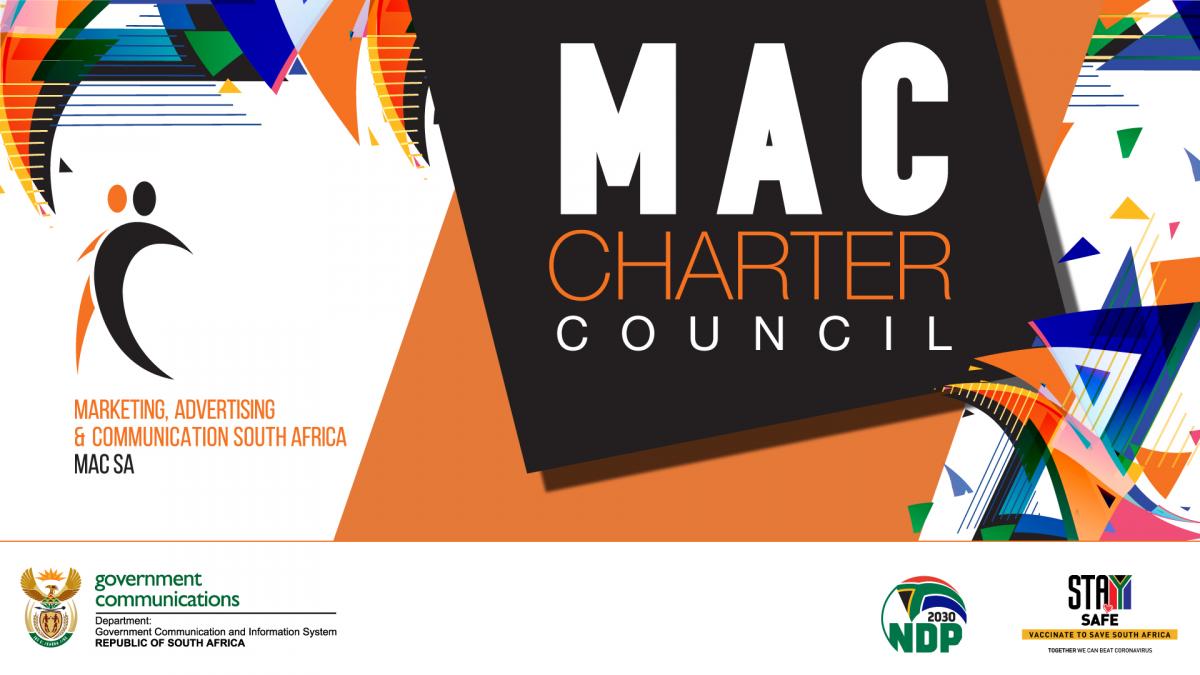By: Ms Mathe Okaba, Deputy Chairperson of MAC Charter Council
In an era where societal values are in constant flux, the Marketing, Advertising, and Communication (MAC) sector stands as a powerful influencer, reflecting and shaping the norms of our society. However, despite strides towards inclusivity, much remains to be done to truly mirror the diverse tapestry of South Africa. The launch of the Revised Marketing, Advertising, and Communication Sector Code heralds an opportunity to reimagine and reconstruct our industry, aligning it with the aspirations of our nation.
This pivotal moment follows extensive consultation and engagement, epitomising a collaborative effort to redefine the trajectory of our sector. The revised code not only provides regulatory certainty but also serves as a catalyst for growth and transformation, echoing the ethos of Broad-Based Black Economic Empowerment (B-BBEE).
The revised sector code embodies a commitment to meaningful participation, emphasising Ownership; Management and Control; Skills Development; Enterprise Development as well as the reworked Responsible Marketing which makes provision for campaign interventions related to Anti-Corruption; intervention on the Energy Crisis; GBVF; support to community media; etc.
The revision to the code has introduced significant changes aimed at fostering greater inclusivity and empowerment within the industry. One of the key provisions is a 10-15 percent increase in ownership targets. This adjustment aligns with the Broad-Based Black Economic Empowerment (B-BBEE) policy objectives, specifically emphasising the importance of encouraging meaningful participation of black individuals in the economy as owners, rather than solely as consumers.
By raising ownership targets, the revised Sector Code seeks to address historical disparities and promote economic transformation. This shift not only fosters greater representation but also provides opportunities for black individuals to have a stake in the industry, contributing to their economic empowerment and promoting a more equitable distribution of wealth.
Furthermore, the revised code places a significant emphasis on skills development. Recognising the importance of levelling the playing field in terms of salary parity. By investing in the development of skills among all demographics, particularly within historically marginalised groups, the industry can ensure that individuals have the necessary tools and qualifications to compete on an equal footing in the job market. This, in turn, can help address wage gaps and promote greater economic inclusivity.
At its core, the MAC sector is not merely about commerce; it's a platform for social cohesion and nation-building. By promoting understanding of our diverse cultures and histories, it holds the power to shape hearts and minds, fostering inclusivity and unity.
The revised sector code embodies a commitment to meaningful participation, emphasising ownership, management, and skills development. By increasing ownership targets and prioritising skills enhancement, we aim to bridge the gap and foster a more equitable landscape, where opportunities are accessible to all.
The code extends its reach beyond company boundaries, urging stakeholders to prioritise transformation in their interactions with third-party service providers. By advocating for procurement from black-owned, female-led enterprises, we reinforce our collective commitment to fostering an ecosystem of inclusivity and empowerment.
However, the efficacy of the Revised Sector Code ultimately hinges on our collective commitment to its implementation. It is not enough for it to be a mere piece of paper; it must become ingrained within the ethos of our industry. This necessitates proactive engagement, accountability, and a willingness to challenge existing paradigms.
Importantly, this isn't just about compliance—it's about embracing a shared vision for a better tomorrow. The MAC Charter Council, with its diverse representation, serves as a guiding force, overseeing implementation, and fostering progressive partnerships. Together, we can unleash the creative potential of our sector, catalysing positive change within our industry and society.
Thirty years into democracy, our industry has evolved, reflecting the dynamic nature of our society. Yet, as we stand on the cusp of a new era, it's incumbent upon us to reinforce our efforts, ensuring that the MAC sector is a true reflection of the soul of our nation.
As we navigate the complexities of our dynamic industry, let us heed the call of the Revised Sector Code to embrace diversity, foster inclusivity, and drive meaningful transformation. Let us harness the power of marketing, advertising, and communication not only to sell products or services but to sow the seeds of a more united, inclusive, and equitable society.
In unity lies our strength, and in transformation lies our collective success. Let's seize this opportunity to shape a brighter, more equitable future for the marketing and advertising sector, and for South Africa as a whole.





